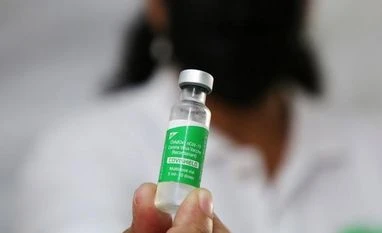A controversy erupted around June when the European Union came up with what is called a ‘Green Pass’ that aims to facilitate free movement between the EU member nations during the Covid-19 pandemic. The AstraZeneca-Oxford vaccine manufactured by India’s Serum Institute of India (SII) did not make it to the list of vaccines that were considered as acceptable by the European regulator.
Background:
The innovator vaccine Vaxzevria as it is called, however, was recognised by the EU while Covishield, which does not have an emergency-use authorization (EUA) by the European Medicine Agency (EMA) was not recognised.
It is interesting to note that Covishield has the World Health Organization's (WHO's) approval, and also from the UK MHRA, as it has supplied doses to the WHO-led Covax initiative as well as to UK’s national immunisation programme.
Covax, the global initiative for equitable distribution of Covid-19 vaccines, spoke against this inequality. In a strongly worded message on July 1, Covax, led by the WHO, Gavi, Unicef and CEPI, said that any measure that only allows people protected by a subset of WHO-approved vaccines to benefit from the re-opening of travel into and within that region will further widen the global vaccine divide. It will also exacerbate the inequities that are being seen in the distribution of Covid-19 vaccines.
“As travel and other possibilities begin to open up in some parts of the world, Covax urges all regional, national and local government authorities to recognise as fully vaccinated all people who have received Covid-19 vaccines that have been deemed safe and effective by the World Health Organization and/or the 11 Stringent Regulatory Authorities (SRAs) approved for Covid-19 vaccines, when making decisions on who is able to travel or attend events,” an official statement said.
India too had opened diplomatic dialogues with the European Union (EU) after the EU Digital Covid Certificate framework recognised the AstraZeneca-Oxford vaccine, but not Covishield.
Thus on by July 1, as many as nine European nations--Slovenia, Greece, Austria, Estonia, Germany, Iceland, Ireland, Spain and Switzerland--will allow Indian travellers who have taken Covishield vaccine to enter these countries.
The development came days after union external affairs minister S Jaishankar took up the issue of Covishield vaccine authorisation for travel in Europe with a top official of the bloc. The European Union (EU) Digital Covid Certificate framework, to facilitate free movement during the Covid pandemic, came into effect on July 1.
International pressure mounted on the EU as in July the African Union Commission and the Africa Centres for Disease Control and Prevention (Africa CDC) had also urged the EU commission to consider increasing mandatory access to those vaccines deemed suitable for global rollout through the EU-supported COVAX Facility.
So far, 16 European countries including France Austria, Belgium, Bulgaria, Finland, Germany, Greece, Hungary, Iceland, Ireland, Latvia, the Netherlands, Slovenia, Spain, Sweden, and Switzerland have recognised Covishield.
British and Canadian citizens would mostly benefit from France’s recent decision as thousands of them who were immunised with the Covishield vaccine were facing restrictions when entering the Western European country.
Confusion around SII seeking an EUA from the EMA
Last week the EMA said it was yet to receive a market authorisation application for Covishield, which is yet to be recognised by the EU for vaccination certifications that may soon become mandatory for international travel.
In June, Adar Poonawalla CEO, SII had said in a tweet from his official twitter handle, “I realise that a lot of Indians who have taken COVISHIELD are facing issues with travel to the E.U., I assure everyone, I have taken this up at the highest levels and hope to resolve this matter soon, both with regulators and at a diplomatic level with countries.”
He said that he hopes to resolve the issue soon. On June 29, SII said that it has applied to the EMA ‘through AstraZeneca’ and hopes that the issue would be resolved within a month or so.
Sources indicate that the EMA is not technically wrong when it says that SII has not sought a EUA. “SII does not have the rights to supply to the EU or US territories according to their agreement with AstraZeneca. What has happened is AstraZeneca has sought approval for SII’s Pune site as an alternative contract manufacturing site which makes an equivalent of Vaxzevria vaccine,” a source close to development said. AstraZeneca has said that it has requested the addition of SII as an alternative manufacturing site on the Vaxzevria licence.
Whether this would require an EMA audit of SII’s Pune facility is not clear.
In a tweet on Thursday, EMA said: “For the Covid-19 vaccine Covishield to be evaluated for use in the EU, the developer needs to submit a formal marketing authorisation application to EMA, which to date has not been received.” EMA has approved Pfizer BioNTech’s Comirnaty, Moderna’s Spikevax, AstraZeneca’s Vaxzevria and Johnson & Johnson’s vaccine for Covid-19.
Unlock 30+ premium stories daily hand-picked by our editors, across devices on browser and app.
Pick your 5 favourite companies, get a daily email with all news updates on them.
Full access to our intuitive epaper - clip, save, share articles from any device; newspaper archives from 2006.
Preferential invites to Business Standard events.
Curated newsletters on markets, personal finance, policy & politics, start-ups, technology, and more.
)